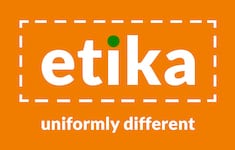The context of our school
Green Lane Church of England Primary School is determined that every pupil will learn to read, regardless of their background, needs or abilities. The importance of being a reader is to gain a voice and to participate meaningfully and assertively in decisions that affect one’s life. The importance of being a reader is to gain self-confidence and to become self-assertive. Reading enables our pupils to read their own world and write their own history. Reading provides access to knowledge – and knowledge is power. In a nutshell … reading empowers. All of our pupils, including the weakest readers, will make sufficient progress to meet or exceed age-related expectations by the time they leave school.
Intent
Class Novel
Fostering a love for reading in children is extremely important and we believe that if children develop that love of reading they will be better learners and will be life-long readers. Each year group has texts which must be read cover to cover with the children. There is nothing more frustrating for children and adults than being hooked into a book and never finding out how it ends, so we have set Class Novels each year teachers read to their class where we know that won’t happen!
The texts have been carefully chosen to complement learning, provide a mixture of classic and contemporary authors and poets and ensure several genres and styles of writing are explored. We have ensured that through these texts, and those identified as texts to support the direct teaching of reading skills and writing, children are exposed to a rich and varied diet of literature.
Reading – fluency & prosody – (Collins Big Cat Books)
At Green Lane, we believe that when children are learning to read, it is imperative that they practise with fully decodable books that are matched to their secure phonic knowledge. This will enable them to use the GPCs they know to decode the words and, with practise, develop fluency when reading.
It will also establish the habit of using phonics as the route to decoding unknown words, avoiding unreliable guessing strategies. Evidence and experience clearly show that this is the most effective approach to ensuring almost all children learn to read.
Comprehension – Whole Class Reading Sessions (Fred’s Teaching)
At Green Lane CE Primary School, we value reading comprehension as a crucial life skill. We have adopted ‘Fred’s Teaching Scheme’ for KS2 to promote and inspire the teaching of reading using a daily delivery over linked texts using inspirational video clips, movie trailers and even major news events. One English lesson per week is also dedicated to comprehension skills, ‘The 5 Steps to Reading’ and APE (Answer, Prove it & Explain it).
Implementation
Class Novel
- The class novel will be read to each class for approximately 15mins each day;
- The class novel is challenging. The children should be able to access it, but it should be text that many of the class could not sit and read cover to cover independently;
- The class teacher reads the class novel so that the children fully get the best possible understanding of it and
- The class novels are planned across the school in order for pupils to be exposed to a wide variety of authors/characters and content (gender/BAME/disability/diversity/equality etc) – so pupils are not just exposed to novels by white middle-class writers with white characters.
Reading – fluency & prosody – (Collins Big Cat Books)
In Key Stage 2, we have two timetabled Harper Collins guided sessions a week where all the pupils have the opportunity to practise fluency and prosody by reading to a teacher. The books used (Harper Collins Big Cat Books) follow every child’s reading journey and help children progress from decoding words to reading fluently and for pleasure with fully decodable books expertly aligned to Letters and Sounds.
All teachers either stamp or write in children’s Reading Records to evidence that they are reading with adults in a Harper Collins guided session with a focus on fluency in school. Our pupils are also assigned their current e-book (which is also the book for their guided reading sessions in class) and are expected to read this over a two-week period as part of their reading homework to practise and consolidate their fluency.
Reading Assessment grids with an added date and group box are used to record the Harper Collins reading fluency sessions. These will then be used to inform individual Reading Assessment grids for formative assessment.
Book Log Records with a group box record the Harper Collins Books for each year group whilst individual Book Log Records are assigned to those on the Rapid Catch Up program.
The pupils have access to over 1500 levelled e-books at home with the Big Cat e-book library. The e-book library is perfect for children to practise reading books at the right level at home.
Comprehension – Whole Class Reading Sessions (Fred’s Teaching)
‘Fred’s Teaching Scheme’ will be taught at least 2 timetabled sessions per week (30mins). The pupils will regularly experience:
- Finding the meanings of unfamiliar vocabulary within the text;
- Rapid retrieval;
- Deeper questions through paired and independent work;
- Explanation of authorial intent (using evidence);
- Prediction and
- Summary.
There will also be one dedicated English lesson for Comprehension Skills. This will be broken into three 20mins parts covering:
1st Part
- Skimming & Scanning;
- Fact or Opinion;
- True or False;
- Multiple Choice;
- Find and Copy Examples;
- Word Vocabulary & Meaning;
- Sequencing;
- Recapping;
- Explanation of authorial intent (using evidence);
- Prediction and
- Summary.
2nd Part
Teach ‘The 5 Steps for Reading’ and answering questions fully referring and giving evidence in their answers – APE (Answer, Prove it & Explain it)
3rd Part
Pupils will complete a comprehension activity covering skills learnt from the week.
Impact
Class Novel – Why read to our children?
- Encourages children to be regular readers;
- Develops listening skills;
- Supports vocabulary development;
- Develops knowledge and understanding of our world;
- Promotes empathy;
- Phonological awareness and grammar Sequencing and
- Promotes problem solving and thinking skills.
Reading – fluency & prosody – (Collins Big Cat Books)
- Matches the phonics progression of Little Wandle Letters and Sounds Revised;
- Introduces new GPCs in the same order as the teaching in Little Wandle Letters and Sounds Revised;
- Ensures cumulative progression so children can practise the GPCs they have already learned in the programme;
- Ensures fully decodable books match programme progression;
- Ensures fully decodable books well-matched to the children’s phonic knowledge and
- Ensures fluency and prosody.
Comprehension – Whole Class Reading Sessions
Pupils will learn numerous Comprehension Skills. They will also learn ‘The 5 Steps to Reading.’
5 Steps to Reading
Each Year Group will be encouraged to use the following steps in structuring their answers.
- Underline keywords in question – these will be the keywords to skim & scan for. (Also helps to focus on meaning of question)
2. Skim & Scan for keywords in text – if not found, look for words with similar meanings. (Make sure the pupils understand the concept of skimming and scanning)
3. Underline keywords in text – so do not lose place when referring back to question
4. Read on/Back a few sentences to find evidence – information is lost if the pupils do not read to end of sentence
5. APE – only needed for questions requiring an answer that asks for proof/evidence from the text
They will also learn how to answer questions fully referring and using evidence from text – ‘APE’ Answer, Prove it and Explain it! Both strategies are displayed in class to refer to and remind the children.
Home Reading & Reading Records
The current Collins Big Cat Book is assigned to each child as an e-book which can be accessed at home on any internet device through a unique username and password. This allows each child to practice their fluency at home and success is shared with the family. Reading for pleasure books also go home which can be read once their current Collins Big Book is finished.
Keeping a Reading Record allows children to respond and engage with what they have just read. Logging their reading allows for more personalised learning and allows children to track the progress of their reading. It also allows parents, teachers and pupils to record the books that pupils have read.
The school Reading Records enable verification between parent/guardian and teacher about the child’s assigned reading books. There is space for parents, teachers or children to write comments about the books. This is useful as the teacher can find out if there are elements of the assigned book that the child finds off-putting, like complicated words or an uninteresting topic.
The comment section is also used for teachers to communicate with the parents as well, in order to direct them towards the area of reading that the teacher wants to work on, e.g. improving reading intonation.
Teachers and parents can also use the Reading Record to identify any mismatches between reading at school and at home.
Children of all abilities benefit from using Reading Records. Children who struggle with reading do not fall through the cracks as easily if their reading is regularly paid attention to. Advanced readers will benefit from being asked to write comments about the books they have read. Keeping Reading Records encourages children to keep track of the volume of books they are reading. Watching the list of books, they have read grow get children excited about reading and prompts them to maintain a reading habit.
The pupils are expected to read at least three times a week and record their entries in their Reading Records which are monitored by parents and class teachers.
Ensuring Reading for Pleasure
‘Reading for pleasure is the single most important indicator of a child’s success.’
OECD 2002
‘The will influences the skill and vice versa.’
OECD 2010
We value reading for pleasure highly and work hard as a school to grow our Reading for Pleasure pedagogy and grow our culture of the love of reading. We try to promote every opportunity for wider reading:
- We read to children every day. We choose these class novels carefully as we want children to experience a wide range of books, including books that reflect the children at Green Lane CE Primary School and our local community as well as books that open windows into other worlds and cultures;
- Staff talk to their class about the current book that they are reading.
- Every classroom has an inviting book area that encourages a love for reading. We curate these books and talk about them to entice children to read a wide range of books;
- Children have their Reading Record which promotes communication between teacher and parent and the monitoring of reading. The parent/carer records comments to share with the adults in school and the adults will write in this on a regular basis to ensure communication between home and school;
- Each child has access to their E-Books at home to reinforce fluency and comprehension from their books read in class. Those children without access are provided with laptops. Each child also has their Pleasure for Reading books;
- The school library which offers a rich variety of reading materials is made available for classes to use so that children can choose a reading for pleasure book or carry out research to support their learning;
- Links have been made with the local library. Their librarians have advised, helped and supported the new look and organisation of the school library and the school has an open invitation to visit the local library at any time;
- Children & parents also have access to the Free Digital Library – Sooper Books is accessible on the school website. It is a trusted online library for 3-10 year olds bringing award-winning children’s stories to schools and families at the touch of a button to continue to promote reading at home;
- Parents have links to age appropriate books on the school website;
- Scholastics book fair;
- Lots of opportunities for book discussions;
- Extra-curricular opportunities to read e.g. a lunchtime book club and
- Reading Assemblies – Mr Goffee reads his favourite book.
Assessment
Assessment is used to monitor progress and to identify any child needing additional support as soon as they need it.
Summative Assessment – each year group in KS2 should formally assess their children at the beginning of the year as a baseline. This test will be given again mid-year and at the end of the year to inform teacher assessment and monitor progress. The tests must follow in line with the 2014 Curriculum
Assessment for Learning is used:
- Daily within class to identify children needing support in fluency & prosody and
- Daily in ‘Fred’s Teaching’ to assess gaps in deeper questioning, comprehension skills and APE.
AfL is used to inform Formative Assessment.
Formative Assessment is used:
- Reading Assessment grids with an added date and group box are used to record the Harper Collins guided reading fluency sessions. These are also used to inform individual Reading Assessment grids and
- Individual Reading Assessment Grids are fed into from Group Harper Collins Assessment Grids and AfL for Fred’s Teaching. These will assess progress, identify gaps in learning that need to be addressed and identify any children needing additional support.
Book Log Records with a group box record the Harper Collins Books for each year group whilst individual Book Log Records are assigned to those on the Rapid Catch Up program.
WCR Book
Each child will require a WCR workbook – no marking & not collected in. The workbook is for making sure the pupils understand and enjoy the texts. Teachers assess constantly (AfL) by circulating and reading work over the shoulders of children and giving live feedback, as well as ‘show calling’ work by displaying it on the board and discussing it with the class. They also do this by collecting answers and discussing reading with the children.
Assessment Grids (kept in a Class Reading Folder or back of individual WCR workbooks) shall be used for each Year Group.
Rapid Catch-Up
The lowest 20% of children in reading for each year group are screened to see whether phonics is a barrier to reading:
- The Rapid Catch-up initial assessment quickly identifies any gaps in their phonic knowledge to allow appropriate teaching for each child;
- The Rapid Catch-up summative assessments assess their progress and informs teaching;
- Assessment data is logged onto the Little Wandle excel sheets, which determine the children’s stages or whether they should try the fluency test if they come out as Phase 5 set 5;
- The Rapid Catch-up fluency assessments are given to those children are reading the Phase 5 set 3, 4 and 5 books for age 7+ and
- The children are given fluency assessments to measure children’s accuracy and reading speed in short one-minute assessments. They also assess when children are ready to exit the Rapid Catch-up programme, which is when they read the final fluency assessment at 90+ words per minute. At these levels, children should have sufficient fluency to tackle any book at age-related expectations. After exiting their programme, children do not need to ready any more fully decodable books.
Those children that have fallen behind will be given extra practice:
- In a quiet place;
- At a regular time so that the children become familiar with the routine;
- Be a school priority, with maximum efforts made to avoid disruption or cancellation;
- Be provided by a well-trained adult: teacher or teaching assistant;
- Be consistent with the school’s phonics programme and
- Include activities that secure the important phonic knowledge the children have not grasped.
Ultimately, we want to break down any barriers to reading and ensure every child is a good reader through good decoding and good comprehension skills.
Pupil Progression in Reading
In Green Lane Primary, we aim to move children to the highest levels in their reading.
Developing reader – reads with increasing fluency and accuracy and uses a range of strategies to construct meaning
Competent reader – reads between the lines, seeing meaning that isn’t stated directly. Deploys a wide range of active strategies to find and read texts for different purposes
Active reader – has sense of the writer at work behind a text, and can explain something about how a text is constructed, based on plenty of prior reading experiences
Reflective reader – can make a considered response to a range of texts and use information from a range of sources
Versatile reader – is a critical and thoughtful reader across a wide range of texts, selecting, sifting, summarising, comparing and contrasting













